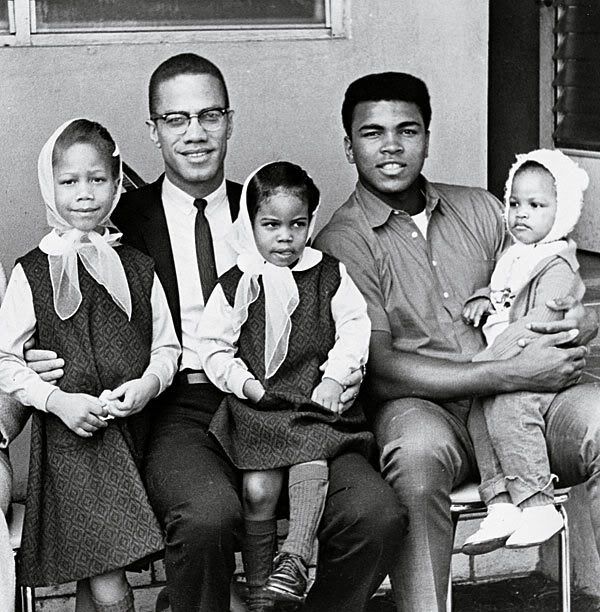
African Americans increasingly reject white cultural standards and authority, and champion their own cultures and consciousness. The Afro hairstyle becomes a black standard of beauty, and a powerful symbol. The phrase "Black Power," now a part of African American culture, indicates rising interest and pride in African heritage. A black arts movement arises, of which poet Amiri Baraka is a prime mover.

Popular boxer Cassius Clay converts to Islam and changes his name to Muhammad Ali. In 1966, when he is drafted for Vietnam, Ali draws criticism when he refuses to serve. Banned from boxing and stripped of his title, Ali stays in the spotlight, speaking against the war.
Meanwhile, activists seek to change education and politics. At Howard University, students demand courses in black studies and culture. And in 1972, 8,000 people from 45 states meet in Gary, Indiana for a National Black Political Convention. The assembly addresses unemployment, poverty, and other issues, publishing a national agenda. In the following decade, the number of black elected officials will more than double.
The National Black Political Convention (1972)
"Economic, cultural, and spiritual depression stalk Black America, and the price for survival often appears to be more than we are able to pay." This was the state of the union according to delegates to the first National Black Political Convention, March 10-12, 1972. The disparate group included elected officials and revolutionaries, integrationists and black nationalists, Baptists and Muslims (the widows of Martin Luther King, Jr. and Malcolm X -- Coretta Scott King and Betty Shabazz -- both attended). They met in Gary, Indiana, a majority black city where they were welcomed by a black mayor, Richard Hatcher. The one group that was excluded was whites (for that reason, Roy Wilkins of the NAACP, an organization that supported integration, criticized the meeting). Participants were buoyed by the spirit of possibility, and themes of unity and self-determination.

Delegates created a National Black Political Agenda with stated goals including the election of a proportionate number of black representatives to Congress, community control of schools, national health insurance, and the elimination of capital punishment. The news media fixed on the most controversial debates about the recognition of a Palestinian homeland and the use of busing to integrate schools, but for the most part the convention was united.
When published, the Agenda included a note addressing the notion that the process was idealistic: "At every critical moment of our struggle in America we have had to press relentlessly against the limits of the 'realistic' to create new realities for the life of our people. This is our challenge at Gary and beyond, for a new Black politics demands new vision, new hope and new definitions of the possible. Our time has come. These things are necessary. All things are possible." (source: PBS)

No comments:
Post a Comment